Find Help
More Items From Ergsy search
-
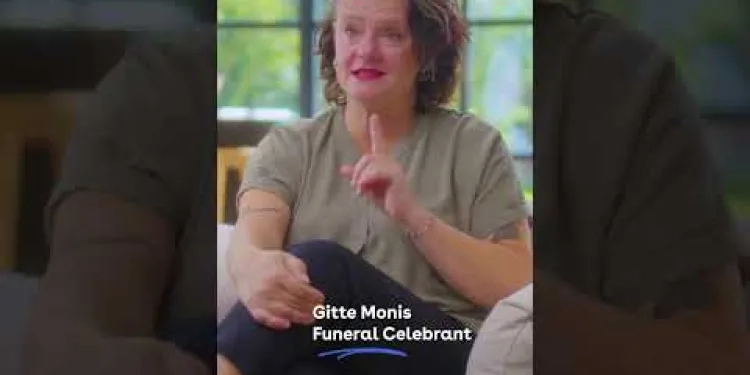
What is a Humanist Celebrant
Relevance: 100%
-

What are the different types of funerals available?
Relevance: 34%
-
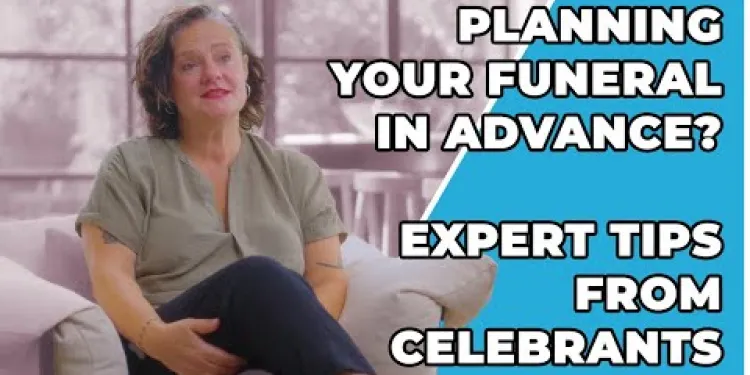
Planning Your Funeral in Advance? | Expert Tips from Celebrants
Relevance: 31%
-

I couldn't celebrate Hibs beating Hearts because I was that depressed
Relevance: 30%
-

What Do You Want for Your Own Funeral? | Personal Funeral Wishes Explored
Relevance: 20%
-

What costs are usually associated with a funeral?
Relevance: 11%
-
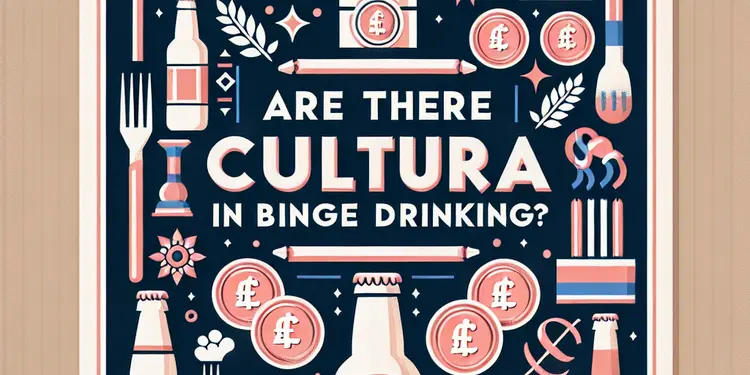
Are there cultural factors in binge drinking?
Relevance: 10%
-

What should I include in a eulogy?
Relevance: 9%
-

What is direct cremation and how much does it cost in the UK?
Relevance: 8%
-

What role do teachers play in supporting SEND children?
Relevance: 8%
-

How can I build my child's self-confidence to help prevent grooming?
Relevance: 7%
-
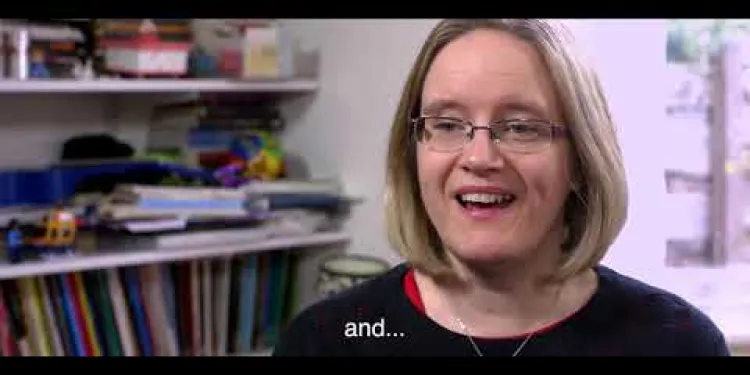
Living with Foetal Alcohol Spectrum Disorder (FASD), a mum’s journey (full version)
Relevance: 7%
-

What is Neurodiversity?
Relevance: 7%
-

What role do family and friends play in the recovery process?
Relevance: 7%
-

How can I stay motivated to walk to work regularly?
Relevance: 7%
-

My Stammering Child
Relevance: 7%
-

How can I personalise a funeral service?
Relevance: 7%
-

How is progress measured for SEND children?
Relevance: 6%
-

How to arrange a funeral in the UK
Relevance: 6%
-

Record Number of Brits Embrace Plant-Based Diets for Wellbeing
Relevance: 6%
-
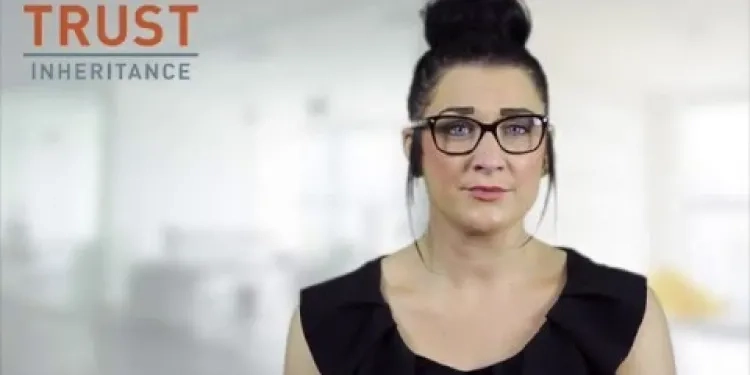
Planning for your funeral
Relevance: 6%
-

How can older adults overcome the fear of trying a new hobby?
Relevance: 6%
-

How can family and friends support someone with health-related anxiety?
Relevance: 5%
-

How can I rebuild my self-esteem in a challenging relationship?
Relevance: 5%
-

Can I have a funeral ceremony at a woodland burial site?
Relevance: 5%
-
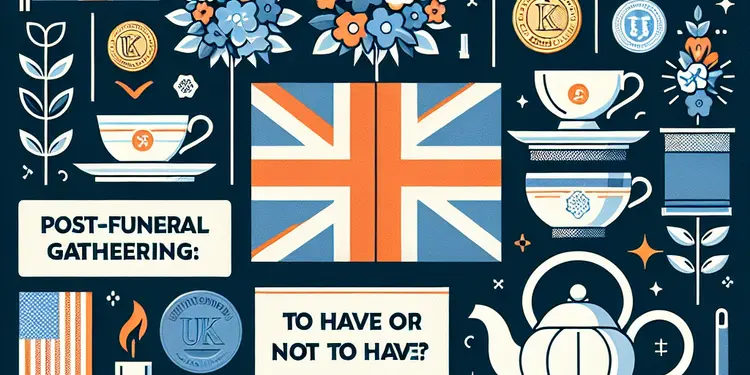
Do I need to have a wake or reception after the funeral?
Relevance: 5%
-

What initiatives are being taken to educate youth about the risks of vaping?
Relevance: 5%
-

Have there been any government campaigns to increase vaccination rates?
Relevance: 5%
-

Are there any societal factors that contribute to obesity?
Relevance: 5%
-

Traditional Ground Burials
Relevance: 5%
-

5 Facts about Alcohol and Britain
Relevance: 5%
-

Practical strategies to support young children who stammer
Relevance: 5%
-

What materials are used for Turkey Teeth?
Relevance: 5%
-

What is a woodland burial?
Relevance: 5%
-

Can I cancel a Time to Pay arrangement once it’s set up?
Relevance: 5%
-

Childhood dyspraxia: James' story | NHS
Relevance: 5%
-

How does sunflower oil compare to olive oil?
Relevance: 5%
-
How can someone help a loved one with an eating disorder?
Relevance: 5%
-

Helping Children With Co-ordination Difficulties
Relevance: 5%
-

How can I treat mosquito bites?
Relevance: 5%
What is a Humanist Celebrant?
A Humanist Celebrant is a professional who performs ceremonies for significant life events such as weddings, funerals, and naming ceremonies without any religious content. These celebrants offer a personalized and meaningful way to celebrate major milestones in a person's life, appealing to those who may not hold religious beliefs. The focus is on the individual's values, experiences, and relationships, making each ceremony unique and tailored to the person or couple involved.
The Role of a Humanist Celebrant
Humanist Celebrants in the UK are trained to design and conduct ceremonies that reflect the beliefs and values of the individuals. They typically meet with those involved to understand their needs and craft a ceremony that resonates personally with everyone present. Celebrants draw on the stories, emotions, and key events of a person’s or couple’s life to create a ceremony that is sincere and memorable. By focusing on human connections and personal stories, Humanist Celebrants ensure that the ceremonies are deeply personal.
Occasions for Humanist Ceremonies
Humanist ceremonies can cover a range of significant life events including weddings, memorials, and naming ceremonies. Humanist weddings offer an alternative to religious or civil ceremonies, allowing couples to express their personal values and beliefs in a setting that is most meaningful to them. Funerals conducted by Humanist Celebrants provide a respectful and reflective way to remember a loved one, emphasizing the impact they had on those around them. Naming ceremonies present a way to welcome a new child into the family and community, highlighting values and aspirations for their future.
Becoming a Humanist Celebrant in the UK
To become a Humanist Celebrant in the UK, an individual typically undergoes a comprehensive training program through organizations such as Humanists UK. Training involves learning how to construct and lead ceremonies that are thoughtful and respectful, ensuring they reflect the preferences of the people involved. Upon completing the training, celebrants are part of a professional network that supports continuous professional development. This assures clients of high standards in the delivery of meaningful ceremonies.
What is a Humanist Celebrant?
A Humanist Celebrant is a person who helps with important events like weddings, funerals, and naming ceremonies. They do this without talking about religion. Instead, they focus on what the person or couple likes and believes in. Each event is special and made just for the people involved.
The Role of a Humanist Celebrant
In the UK, Humanist Celebrants are trained to create events that match what people believe in. They talk to the people involved to find out what they want. Then, they make a ceremony that feels right for everyone there. They use stories and feelings from the person’s life to make the ceremony special and memorable. This makes sure the event is personal and sincere.
Occasions for Humanist Ceremonies
Humanist ceremonies can be for events like weddings, funerals, and naming ceremonies. At a Humanist wedding, couples can share what they believe in instead of following religious or civil traditions. Funerals done by a Humanist Celebrant help families remember their loved ones in a thoughtful way. Naming ceremonies are a way to welcome a new child into the family and share hopes for their future.
Becoming a Humanist Celebrant in the UK
To be a Humanist Celebrant in the UK, a person must go through training with groups like Humanists UK. They learn how to make and lead ceremonies that show what people want. After training, they join a professional group that helps them keep learning more. This makes sure they keep doing a good job at creating meaningful events.
Frequently Asked Questions
What is a Humanist Celebrant?
A Humanist Celebrant is an individual trained and accredited to conduct non-religious ceremonies such as weddings, funerals, and naming ceremonies based on humanist principles.
What types of ceremonies do Humanist Celebrants conduct?
Humanist Celebrants conduct a variety of ceremonies, including weddings, funerals, namings, and other life events, all of which are secular and personalised.
Are Humanist Celebrant-led ceremonies legally recognised?
In the UK, Humanist wedding ceremonies are not legally recognised in England and Wales, so couples will need to have a civil ceremony as well. However, in Scotland and Northern Ireland, they are legally recognised.
How do Humanist Celebrants personalise ceremonies?
Humanist Celebrants work closely with individuals to craft unique ceremonies that reflect personal stories, values, and preferences rather than following a set script.
What are the core principles of a Humanist Celebrant?
Humanist Celebrants focus on secularism, celebrating life, human connection, personal storytelling, and inclusivity in all ceremonies.
Can a Humanist Celebrant include religious elements in a ceremony?
Typically, Humanist ceremonies are secular and do not include religious elements. However, they can acknowledge different beliefs and incorporate symbolic gestures that are meaningful to the participants.
How does one become a Humanist Celebrant?
In the UK, one typically undergoes training and accreditation through organisations such as Humanists UK, which provides resources and support for those looking to become celebrants.
Are Humanist Celebrants affiliated with any religious organisations?
No, Humanist Celebrants are not affiliated with religious organisations. They conduct secular ceremonies based on humanist philosophy.
Can Humanist Celebrants perform ceremonies for LGBTQ+ individuals?
Yes, Humanist Celebrants are committed to inclusivity and are happy to conduct ceremonies for LGBTQ+ individuals and couples.
How are Humanist Celebrant-led funerals different from religious ones?
Humanist funerals focus on celebrating the life of the deceased without religious rites or references, highlighting personal stories and connections.
What is the cost of hiring a Humanist Celebrant?
The cost can vary depending on the type of ceremony, location, and the celebrant's experience. It's best to consult directly with a celebrant for specific pricing.
How long does a ceremony conducted by a Humanist Celebrant typically last?
Ceremony lengths can vary but generally last between 20 to 40 minutes, depending on the content and preferences of the participants.
Is a Humanist Celebrant the same as a celebrant from other non-religious organisations?
While other non-religious celebrants exist, a Humanist Celebrant specifically follows humanist principles and methods developed by humanist organisations.
Can we involve family and friends in a Humanist ceremony?
Yes, family and friends can be actively involved in a Humanist ceremony, through readings, music, or personal tributes.
What support does a Humanist Celebrant provide in planning a ceremony?
A Humanist Celebrant offers guidance in planning, developing the ceremony script, personalising the event, and ensuring everything runs smoothly on the day.
What Does a Humanist Celebrant Do?
A Humanist Celebrant is a person who is trained to lead special events. These events include things like weddings, funerals, and naming ceremonies. They do this in a non-religious way, based on humanist ideas.
What ceremonies do Humanist Celebrants do?
Humanist Celebrants help with special events like:
- Weddings - when two people get married.
- Funerals - when we say goodbye to someone who has died.
- Baby Namings - when we welcome a new baby.
If you want to learn more, you can:
- Ask someone you trust to help explain.
- Look at pictures or videos about ceremonies.
- Use apps that read text out loud for you.
Humanist Celebrants help people have special events. They can do weddings, funerals, baby naming, and other important events. These events are not religious, and they are made special for each person.
Are Humanist Celebrant-led ceremonies legal?
In the UK, if you want a Humanist wedding in England or Wales, it is not a legal wedding. You will also need to do a civil ceremony to make it legal. But in Scotland and Northern Ireland, a Humanist wedding is legal.
Here is a tip: You can use a calendar to plan both the Humanist and civil ceremonies. You could also talk to a wedding planner who can help you with all the details.
How do Humanist Celebrants make ceremonies special for each person?
Humanist Celebrants help people create special ceremonies. They listen to your stories and what you like. They make a ceremony that is just for you, not from a book.
What does a Humanist Celebrant believe in?
A Humanist Celebrant is someone who helps with weddings, funerals, and other ceremonies. They do this without religion.
Here are the main things they believe in and do:
- They believe in being kind and respectful to everyone.
- They think everyone should live a happy and full life.
- They do not believe in any gods or supernatural things.
- They listen to people and help them create special ceremonies.
- They believe in using reason and science to understand the world.
Tools and tips to help understand more:
- Use Pictures: Look at pictures that show what they do.
- Ask Questions: Talk to a person who knows about Humanism to learn more.
Humanist Celebrants focus on non-religious ways. They celebrate life, people being together, sharing personal stories, and making everyone feel included in all ceremonies.
Can a Humanist Celebrant add religious parts to a ceremony?
Humanist ceremonies are usually without any religious parts. They can include special actions that mean a lot to the people involved. These actions can show respect for different beliefs.
How can someone become a Humanist Celebrant?
Do you want to help people celebrate special days in a humanist way? You can become a Humanist Celebrant! Here's how:
- Learn about Humanism. It's about being kind without needing religion!
- Check if there are training courses nearby or online. Training helps you learn what to do.
- Join a humanist group. They can give you support and advice.
- Practice planning ceremonies for birthdays, weddings, or other big days.
Remember, it's okay to ask for help. Use tools like calendars to keep track of dates and practice speaking clearly so everyone can understand you.
In the UK, people usually get training from places like Humanists UK. They help and give resources to people who want to become celebrants.
Do Humanist Celebrants belong to any religious groups?
No, Humanist Celebrants are not part of any religious groups. They lead ceremonies that don't involve religion. They follow humanist beliefs, which focus on people and the world we live in.
Can Humanist Celebrants do ceremonies for LGBTQ+ people?
Yes, Humanist Celebrants can help LGBTQ+ people with ceremonies. They welcome everyone, no matter who they love. You can ask your family or a helper to find a Humanist Celebrant for you.
Yes, Humanist Celebrants welcome everyone. They are happy to help with ceremonies for LGBTQ+ people and couples.
What is different about Humanist Celebrant-led funerals compared to religious ones?
A Humanist Celebrant-led funeral is a type of funeral with no religious parts. A Celebrant helps to make the funeral special.
- No Prayers: There are no prayers or hymns. The focus is on remembering the person who has died.
- Personal Stories: The funeral tells stories about the person's life.
- Special Music or Poems: You can choose music or poems that meant a lot to the person.
- Different Locations: These funerals can be held almost anywhere.
If reading is hard, you can ask someone to help you understand. You can also listen to the info or look at pictures to help.
A humanist funeral is a special ceremony for someone who has died. It is about celebrating their life, but it does not include religious words or prayers. Instead, it shares happy memories and stories about the person and their life.
How much does it cost to have a Humanist Celebrant?
A Humanist Celebrant is someone who helps with important events, like weddings or funerals. They do not talk about religion.
How to find out the cost:
- Ask the Celebrant for their price. They might have different prices for different events.
- Check their website for prices.
- Ask a family member or a friend to help you.
Helpful tools:
- Use a calculator to add things up.
- Write down questions to ask the Celebrant.
- Use the internet for more information.
The price can be different for each ceremony. It depends on what kind of ceremony it is, where it will be, and how much practice the person leading it has. It’s a good idea to ask the person in charge of the ceremony about the cost.
How long is a ceremony led by a Humanist Celebrant?
A ceremony by a Humanist Celebrant usually takes about 30 to 45 minutes.
If you find reading hard, you can:
- Ask someone to help you read.
- Use tools that read the text out loud.
- Break the text into smaller parts to understand better.
Ceremonies can be short or a bit longer. They usually last 20 to 40 minutes. How long they are depends on what people want to do in the ceremony.
Is a Humanist Celebrant the same as a celebrant from other non-religious groups?
A Humanist Celebrant is a person who helps lead celebrations like weddings and funerals without talking about religion. Other non-religious groups also have celebrants. They all help with celebrations but might do things a little differently.
If you need help with reading, you can:
- Ask someone to read it with you.
- Listen to an audio version.
- Use a tool that reads text out loud.
There are different kinds of celebrants who are not part of a religion. A Humanist Celebrant is a special kind of celebrant. They follow ideas and ways from groups called humanist organisations.
Can family and friends join in a Humanist ceremony?
Yes, they can! Family and friends can take part in a Humanist ceremony. It can make the day even more special.
Here are some ideas:
- They can read a poem or a story.
- They can play music or sing a song.
- They can share a favorite memory.
Using pictures or having someone help read can be useful too.
Yes, family and friends can help in a Humanist ceremony. They can do things like read poems, play music, or share special stories.
How does a Humanist Celebrant help plan a ceremony?
A Humanist Celebrant helps you organize a special event, like a wedding or naming day. They work with you to make sure the day is just how you want it.
Here is how they can help:
- They talk with you to understand your wishes.
- They help write personal words for the event.
- They offer ideas for music, readings, and special actions.
- They make sure everything goes smoothly on the day.
Some things to make this easier:
- Ask questions: It’s okay to ask them anything you’re not sure about.
- Use pictures: Pictures of what you like can help show your ideas.
- Make a list: Write down what is most important to you for the day.
A Humanist Celebrant helps you plan your special event. They can help write the ceremony, make it personal for you, and make sure everything goes well on the day.
Useful Links
This website offers general information and is not a substitute for professional advice.
Always seek guidance from qualified professionals.
If you have any medical concerns or need urgent help, contact a healthcare professional or emergency services immediately.
Some of this content was generated with AI assistance. We’ve done our best to keep it accurate, helpful, and human-friendly.
- Ergsy carfully checks the information in the videos we provide here.
- Videos shown by Youtube after a video has completed, have NOT been reviewed by ERGSY.
- To view, click the arrow in centre of video.
- Most of the videos you find here will have subtitles and/or closed captions available.
- You may need to turn these on, and choose your preferred language.
- Go to the video you'd like to watch.
- If closed captions (CC) are available, settings will be visible on the bottom right of the video player.
- To turn on Captions, click settings .
- To turn off Captions, click settings again.
More Items From Ergsy search
-

What is a Humanist Celebrant
Relevance: 100%
-

What are the different types of funerals available?
Relevance: 34%
-

Planning Your Funeral in Advance? | Expert Tips from Celebrants
Relevance: 31%
-

I couldn't celebrate Hibs beating Hearts because I was that depressed
Relevance: 30%
-

What Do You Want for Your Own Funeral? | Personal Funeral Wishes Explored
Relevance: 20%
-

What costs are usually associated with a funeral?
Relevance: 11%
-

Are there cultural factors in binge drinking?
Relevance: 10%
-

What should I include in a eulogy?
Relevance: 9%
-

What is direct cremation and how much does it cost in the UK?
Relevance: 8%
-

What role do teachers play in supporting SEND children?
Relevance: 8%
-

How can I build my child's self-confidence to help prevent grooming?
Relevance: 7%
-

Living with Foetal Alcohol Spectrum Disorder (FASD), a mum’s journey (full version)
Relevance: 7%
-

What is Neurodiversity?
Relevance: 7%
-

What role do family and friends play in the recovery process?
Relevance: 7%
-

How can I stay motivated to walk to work regularly?
Relevance: 7%
-

My Stammering Child
Relevance: 7%
-

How can I personalise a funeral service?
Relevance: 7%
-

How is progress measured for SEND children?
Relevance: 6%
-

How to arrange a funeral in the UK
Relevance: 6%
-

Record Number of Brits Embrace Plant-Based Diets for Wellbeing
Relevance: 6%
-

Planning for your funeral
Relevance: 6%
-

How can older adults overcome the fear of trying a new hobby?
Relevance: 6%
-

How can family and friends support someone with health-related anxiety?
Relevance: 5%
-

How can I rebuild my self-esteem in a challenging relationship?
Relevance: 5%
-

Can I have a funeral ceremony at a woodland burial site?
Relevance: 5%
-

Do I need to have a wake or reception after the funeral?
Relevance: 5%
-

What initiatives are being taken to educate youth about the risks of vaping?
Relevance: 5%
-

Have there been any government campaigns to increase vaccination rates?
Relevance: 5%
-

Are there any societal factors that contribute to obesity?
Relevance: 5%
-

Traditional Ground Burials
Relevance: 5%
-

5 Facts about Alcohol and Britain
Relevance: 5%
-

Practical strategies to support young children who stammer
Relevance: 5%
-

What materials are used for Turkey Teeth?
Relevance: 5%
-

What is a woodland burial?
Relevance: 5%
-

Can I cancel a Time to Pay arrangement once it’s set up?
Relevance: 5%
-

Childhood dyspraxia: James' story | NHS
Relevance: 5%
-

How does sunflower oil compare to olive oil?
Relevance: 5%
-
How can someone help a loved one with an eating disorder?
Relevance: 5%
-

Helping Children With Co-ordination Difficulties
Relevance: 5%
-

How can I treat mosquito bites?
Relevance: 5%


